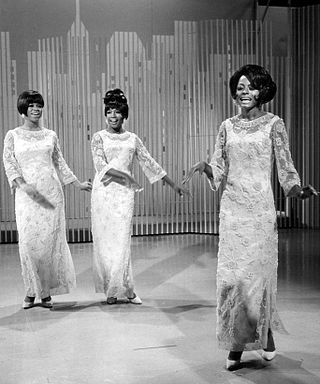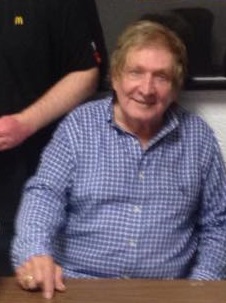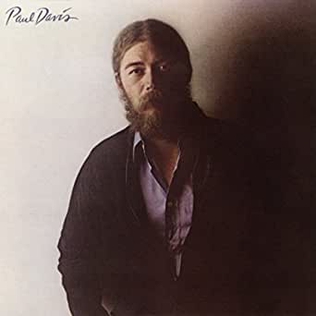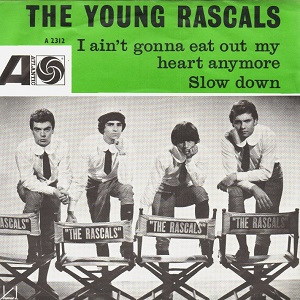Related Research Articles

The Supremes were an American girl group and a premier act of Motown Records during the 1960s. Founded as the Primettes in Detroit, Michigan, in 1959, the Supremes were the most commercially successful of Motown's acts and the most successful American vocal band, with 12 number-one singles on the Billboard Hot 100. Most of these hits were written and produced by Motown's main songwriting and production team, Holland–Dozier–Holland. It is said that their breakthrough made it possible for future African-American R&B and soul musicians to find mainstream success. Billboard ranked the Supremes as the 16th greatest Hot 100 artist of all time.

Richard Pierce Havens was an American singer-songwriter and guitarist. His music encompassed elements of folk, soul, and rhythm and blues. He had a rhythmic guitar style. He was the opening act at Woodstock, sang many jingles for television commercials, and was also the voice of the GeoSafari toys.

Ray Erskine Parker Jr. is an American musician, singer, songwriter, and record producer. As a solo performer, he wrote and performed the theme song for the 1984 film Ghostbusters and also sounds from the animated series The Real Ghostbusters. Previously, Parker achieved a US top-5 hit in 1982 with "The Other Woman". He also performed with his band, Raydio, and with Barry White in the Love Unlimited Orchestra.

Billy Joe Royal was an American country soul singer. His most successful record was "Down in the Boondocks" in 1965.

Barrett Strong Jr. was an American singer and songwriter known for his recording of "Money ", which was the first hit single for the Motown record label. He is also known for his songwriting work in association with producer Norman Whitfield; together, they penned such songs as "I Heard It Through the Grapevine", "War", "Just My Imagination ", and "Papa Was a Rollin' Stone".
"Candy Girl" is the title of a hit single recorded in 1963 by the Four Seasons. Written by Larry Santos, it is the first original Four Seasons single composed by neither Bob Gaudio nor Bob Crewe. The writer, Larry Santos, would become a chart artist in his own right with 1976's "We Can't Hide It Anymore". A stereo version was released in 1975, on The Four Seasons Story album.

"Hot Fun in the Summertime" is a 1969 song recorded by Sly and the Family Stone. The single was released just prior to the band's high-profile performance at Woodstock, which greatly expanded their fanbase. The song peaked at number 2 on the U.S. Billboard Hot 100 pop singles chart, kept out of the number 1 spot by "I Can't Get Next to You" by The Temptations. "Hot Fun in the Summertime" also peaked at number 3 on the U.S. Billboard soul singles chart in autumn 1969. It is ranked as the seventh biggest U.S. hit of 1969, and the 65th in Canada.

Paul Lavon Davis was an American singer and songwriter, best known for his radio hits and solo career that started worldwide in 1970. His career encompassed soul, country, and pop. His most successful songs are 1977's "I Go Crazy", a No. 7 pop hit that once held the record for the longest chart run on the Billboard Hot 100, and 1982's "'65 Love Affair", which at No. 6 is his highest-charting single. Another pop hit, "Cool Night", was released in 1981. In the mid-1980s, he also had two No. 1 country hits as a guest vocalist on songs by Marie Osmond and Tanya Tucker.

Gratitude is a double live album by American band Earth, Wind & Fire, issued in November 1975 by Columbia Records. The album spent six weeks atop the Billboard Top Soul Albums chart and three weeks atop the Billboard 200 chart. Gratitude has also been certified Triple Platinum in the US by the RIAA.

Leonard Warren Borisoff, known professionally by the stage name Len Barry, was an American singer, songwriter, lyricist, record producer, author, and poet.
Barbara Mason is an American soul singer with several R&B and pop hits in the 1960s and 1970s, best known for her self-written 1965 hit song "Yes, I'm Ready". She has released 12 albums, including her 1965 debut with Yes, I'm Ready, and has had 14 top 40 hits on the US Billboard R&B chart.

"I've Been Loving You Too Long" (originally "I've Been Loving You Too Long (To Stop Now)") is a soul music ballad written by Otis Redding and Jerry Butler. Considered by music critics and writers to be one of Redding's finest performances and a soul classic, it is a slow, emotional piece with Redding's pleading vocals backed by producer Steve Cropper's arpeggiated guitar parts and a horn section.
"Splish Splash" is a 1958 novelty rock song performed and co-written by Bobby Darin.
Spyder Turner is an American soul singer. Turner was raised in Detroit, and sang in doo wop groups and high school choirs while young. He first began recording after winning a contest at the Apollo Theater in New York City, recording some solo sides and singing backup for several groups including The Stereophonics and The Fabulous Counts.
Ronald Dyson was an American soul and R&B singer and actor. He had a lead role in the Broadway production of Hair and scored a top ten single in 1970 with "(If You Let Me Make Love to You Then) Why Can't I Touch You?"

"You Can't Hide Love" is a single by soul group Creative Source released in 1973 on Sussex Records. The song reached No. 48 on the Billboard Hot R&B Singles chart.

"I Ain't Gonna Eat Out My Heart Anymore" is a song written by Pam Sawyer and Laurie Burton in 1965. Originally envisioned to be recorded by a British Invasion artist, the song was extremely well liked by the American rock group the Young Rascals, and they subsequently recorded the song and released it as their debut single in November 1965 through Atlantic Records. Though only a marginal hit, reaching number 52 on the Billboard Hot 100, it largely established the band on the American music scene. It has since been included on several albums by the band, including their eponymous debut album, and several compilation albums, including Time Peace: The Rascals' Greatest Hits, on which it was the opening track.
"We Can't Hide It Anymore" is an American pop music song written by Barry Murphy and first recorded by Larry Santos. It appeared on Santos' 1975 album Casablanca and the single reached number 36 on Billboard magazine's Billboard Hot 100 chart in April 1976.

Larry Santos is the fourth studio album by American pop singer and songwriter, Larry Santos, released on Casablanca Records in 1975. The album includes the song "We Can't Hide it Anymore" which reached number 36 on the Billboard Hot 100 pop song chart. it also features the Christian pop single, which is mainly all about Father God touching a newborn child and inspiring him with Christian love on an early sunrise, called, "Early In The Morning".

You Are Everything I Need is the fifth album by American pop singer/songwriter/pianist Larry Santos, released in 1976 on Casablanca Records. This follow-up also features "Early in the Morning", I Don't Know Why", a cover of Linda Ronstadt's 1970 tune, "Long, Long Time", written by Gary White and "We Can't Hide It Anymore". It was also produced by Detroit soul producer Don Davis.
References
- ↑ Bronson, Fred (October 1, 2003). The Billboard Book of Number One Hits (5th ed.). Billboard. p. 125. ISBN 978-0823076772.
- 1 2 "Top Album Picks". Billboard Magazine. 89 (42): 92. October 22, 1977.
- ↑ Jancik, Wayne (January 1998). The Billboard Book of One-Hit Wonders. Billboard. p. 507. ISBN 9780823076222.
- ↑ Kiska, Tim; Gollick, Ed (2010). Detroit Television. Images of America. Arcadia Publishing. p. 66. ISBN 9780738577074.
- ↑ Woolery, George W. (May 23, 1995). Children's Television, the First Thirty-five Years, 1946-1981: Live, film, and tape series. Scarecrow Press. p. 228. ISBN 978-0810816510.
- 1 2 Hall, Claude (September 6, 1969). "Field Productions Offers Client An On-the-Spot Custom Service". Billboard Magazine. Vol. 81, no. 36. p. 38.
- 1 2 Damsker, Matt (September 16, 1984). "Richie Havens Sells His Soul". Los Angeles Times. p. Q70.
- ↑ Colford, Paul D. (October 16, 1985). "FOLK WISDOM; Veteran Richie Havens finds a new medium for the music". Newsday. p. 3. ProQuest 285328859 . Retrieved November 22, 2013.